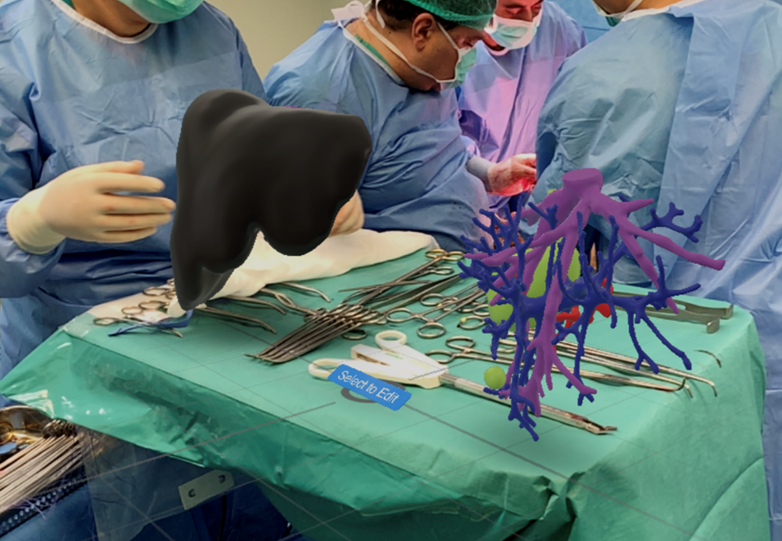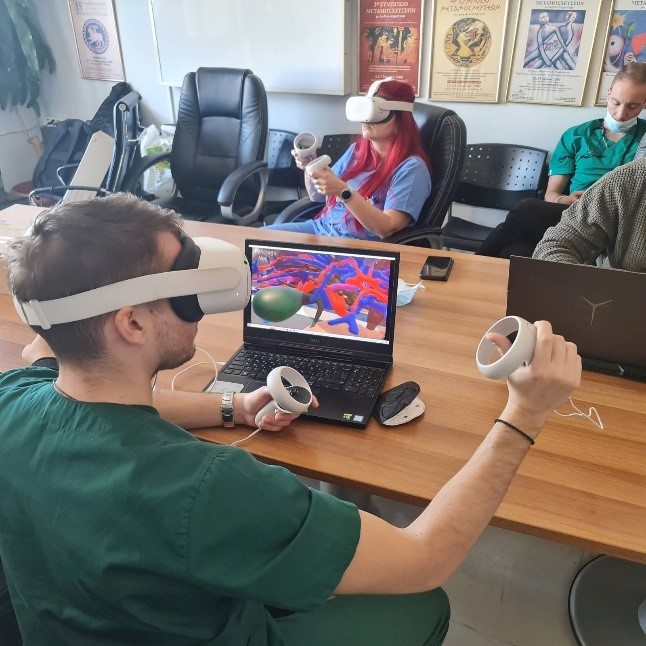NEWS
NEWS
NEWS
Center for Research and Innovation in Solid Organ Transplantation

The Department of Transplantation Surgery of the Aristotle University School of Medicine has a history of over forty years, which includes the programs of pediatric and adult renal transplantation, pediatric and adult liver transplantation, renal transplantation from living donors and pancreas transplantation, in addition to the long-standing work of management of complex hepatobiliary cancers and liver injury. Specifically, since the beginning of the program the following transplantations have taken place: 754 liver transplantations, 1108 renal transplantations from a deceased donor, 859 renal transplantations from a living donor, 7 combined liver-kidney transplantation, 13 combined pancreas-kidney transplantations, 21 pediatric liver transplantations (the first one was on July 1 1992 in a 6 month newborn baby), 214 pediatric renal transplantations.
Beyond this important clinical work (or rather because of it), the Department of Transplantation Surgery has significant research work with active participation in several Greek and International research protocols, as well as collaborations with transplantation centers from all around the world (Imperial College London, Massachusetts General Hospital, Harvard University, Universitaire Erasme), and interdisciplinary collaborations with departments of the Aristotle University of Thessaloniki (School of Rural and Surveying Engineering, the School of Mechanical Engineering, the School of Film), as well as other Departments and Laboratories of the Aristotle University School of Medicine, such as the Medical Physics and Digital Innovation Laboratory, the Laboratory of Forensic Medicine &Toxicology among others. The main goal of this research effort is the introduction of new technologies, such as artificial intelligence and extended reality in the field of transplantation, so that this can lead to better care for our patients.
To better coordinate and leverage this effort to harness and optimize the results, the Center for Research and Innovation in Solid Organ Transplantation (CRISOT) was created, operating within the administrative structure of the Biomedical Research and Education Special Unit of the Aristotle University School of Medicine. The creation of this Center has allowed improved organization and coordination of research initiatives, increased competitiveness for research funding, as well as the promotion and development of more synergies and collaborations with other Greek and international centers, in both the academic and industry areas. The pillars of CRISOT are education, providing young scientists opportunities for development, research and collaboration between industry and academia, so that the results of research can help our patients.
The research programs and results have already been presented in Greek and international meetings with strong impact. Key ones among them are 3D printing of solid organs for use in the education of students, residents and physicians, as well as the planning and simulation of complex surgical operations, the use of extended reality technology for educational purposes (Evaluating Novel Tangible & Intangible Co-creative Experimental Medical Education – ENTICE – project with the Medical Physics and Digital Innovation Laboratory as the lead of an international consortium), the use of the LIDAR (Light Detection and Ranging 3D photography) system in the evaluation of hepatic grafts, the use of biosensors and artificial intelligence for the support of the surgical process and education, the use of artificial intelligence in translational research and the analysis of liver cancers, the role of virtual reality and artificial intelligence in preoperative planning, the role of ChatGPT in transplantation, the development and evolution of hepatocellular carcinoma from the laboratory to the operating room, the use of drones in transplantation, as well as topics such well-being of professionals and gender equity in transplantation.
Especially important and novel is the collaboration between CRISOT, the Hellenic Society of Transplantation, the School of Engineering of the Aristotle University of Thessaloniki, and the team of Professor Vassilios Papalois at Imperial College, London, UK, for “Green Transplant”. This is a significant innovation, as the goal is the identification, evaluation and improvement of the environmental footprint of the transplantation process, something which will be a guiding example for several other surgical procedures and processes.
The creation of CRISOT, and especially as part of the Biomedical Research and Education Special Unit of the Aristotle University School of Medicine is a groundbreaking, innovative initiative in the field of transplantation in Greece, which is developing solid foundation so that the School of Medicine and the Aristotle University of Thessaloniki will play a leading role in Greece and in the international setting. It should be stressed that our students are a key part of CRISOT, as they have taken the lead in several of these programs.
-3D Printing and Bioprinting



-ENTICE (Evaluating Novel Tangible and Intangible Co-creative Experiential medical education) (Medical Physics and Digital Innovation Laboratory)

-MIDAS (MIxeD reality, biosensors and Artificial intelligence technologies supporting Surgery practice and education)



-Liver Transplantation during the COVID-19 pandemic

This website uses cookies to ensure you get the best experience. Read our privacy policy.